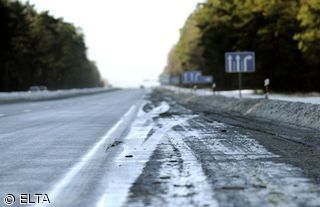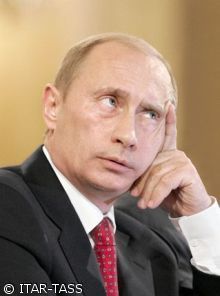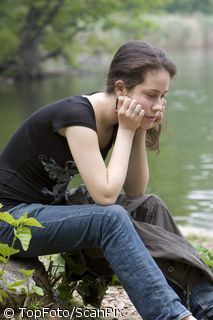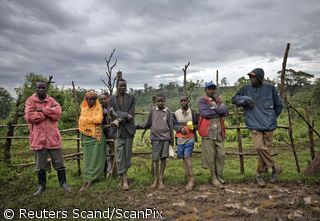Recent data indicate a 20 percent drop in reverse immigration to Russia in 2004 compared to 2003
Published:
3 January 2005 y., Monday
Recent data indicate a 20 percent drop in reverse immigration to Russia in 2004 compared to 2003, according to Mark Toltz, a demographer at the Hebrew University's Institute of Contemporary Jewry.
Emigration from Russia also dropped last year, but to a smaller degree - only 15 percent lower than the previous year.
The trends can be explained by the early signs of economic recovery and the improvement of the security situation. It is difficult to estimate the exact number of immigrants who have returned to Russia, but according to various Jewish organizations, the number of returnees who live and work in Moscow alone is around 35,000, and this number has been increasing over the last few years. At a Knesset Immigration and Absorption Committee meeting initiated at the end of last year, participants expressed concern over the growing trend.
Toltz, relying on data from the statistical bureau of the Russian Federation, said less than 14,000 immigrants have returned to Russia and registered as permanent residents from 1997 until the peak of the trend in 2003. Although the figures do not allow for estimating the real number of returnees, since not all of them register, there have been signs of a downward trend.
Currently 243,000 "nuclear" Jews, those who define themselves as Jews and generally have two Jewish parents, live in Russia. The expanded nucleus, which includes the "nuclear" Jews and their expanded families, is twice this number. Meanwhile, the number eligible to immigrate to Israel according to the Law of Return is said to be 800,000, Toltz said.
Šaltinis:
haaretz.com
Copying, publishing, announcing any information from the News.lt portal without written permission of News.lt editorial office is prohibited.
The most popular articles
 Preparations for the traditional Mexican Day of the Dead get underway in Mexico City as residents erect alters and bake bread for the deceased.
more »
Preparations for the traditional Mexican Day of the Dead get underway in Mexico City as residents erect alters and bake bread for the deceased.
more »
 In three resolutions adopted in Strasbourg on Thursday, the European Parliament restates its solidarity with O. Orlov, a member of the Russian human rights organization Memorial and winner of the 2009 EP Sakharov Prize, who is now facing trial, denounces the imprisonment of Cambodian opposition leader S. Rainsy and calls on Zimbabwe's President R. Mugabe to put an end to the threat of mass forced evictions.
more »
In three resolutions adopted in Strasbourg on Thursday, the European Parliament restates its solidarity with O. Orlov, a member of the Russian human rights organization Memorial and winner of the 2009 EP Sakharov Prize, who is now facing trial, denounces the imprisonment of Cambodian opposition leader S. Rainsy and calls on Zimbabwe's President R. Mugabe to put an end to the threat of mass forced evictions.
more »
 Marrying diligent driver behaviour, quality road infrastructure and sound vehicles for safer roads across Europe.
more »
Marrying diligent driver behaviour, quality road infrastructure and sound vehicles for safer roads across Europe.
more »
 A group of journalism students in Moscow pose semi-naked for a steamy calendar wishing Russia's prime minister a happy birthday.
more »
A group of journalism students in Moscow pose semi-naked for a steamy calendar wishing Russia's prime minister a happy birthday.
more »
 In the EU27 in 2008, 20% of women and 32% of men aged 25 to 34 lived with at least one of their parents.
more »
In the EU27 in 2008, 20% of women and 32% of men aged 25 to 34 lived with at least one of their parents.
more »
 “Vertical” health funds targeting specific diseases such as AIDS, malaria or TB have achieved some success, but only at the cost of draining resources from basic “horizontal” health infrastructure such as clinics.
more »
“Vertical” health funds targeting specific diseases such as AIDS, malaria or TB have achieved some success, but only at the cost of draining resources from basic “horizontal” health infrastructure such as clinics.
more »
 This autumn, the 2010 European Job Days give jobseekers a chance to meet employers from all over Europe, and find out about working in other EU countries through seminars and workshops.
more »
This autumn, the 2010 European Job Days give jobseekers a chance to meet employers from all over Europe, and find out about working in other EU countries through seminars and workshops.
more »
 During his visit to New York, on 27 September at the City University of New York, Lithuania’s Minister of Foreign Affairs A. Ažubalis, opened a photography exhibition dedicated to the Lithuanian Jewish cultural heritage and conferred an award of Lithuania’s Ministry of Foreign Affairs on former Executive Director of the YIVO Institute for Jewish Research.
more »
During his visit to New York, on 27 September at the City University of New York, Lithuania’s Minister of Foreign Affairs A. Ažubalis, opened a photography exhibition dedicated to the Lithuanian Jewish cultural heritage and conferred an award of Lithuania’s Ministry of Foreign Affairs on former Executive Director of the YIVO Institute for Jewish Research.
more »
 The 26th of September marks the European Day of Languages. Perhaps the Knights of the Order of St John in the Middle Ages prided themselves about the fact that they had eight “langues” but Parliament does better with its daily “Headlines” on its website in 22 languages.
more »
The 26th of September marks the European Day of Languages. Perhaps the Knights of the Order of St John in the Middle Ages prided themselves about the fact that they had eight “langues” but Parliament does better with its daily “Headlines” on its website in 22 languages.
more »
 A proposed new plan focuses on closing the pay gap and opening up company boardrooms to more women. Tackling domestic violence is also a top priority.
more »
A proposed new plan focuses on closing the pay gap and opening up company boardrooms to more women. Tackling domestic violence is also a top priority.
more »